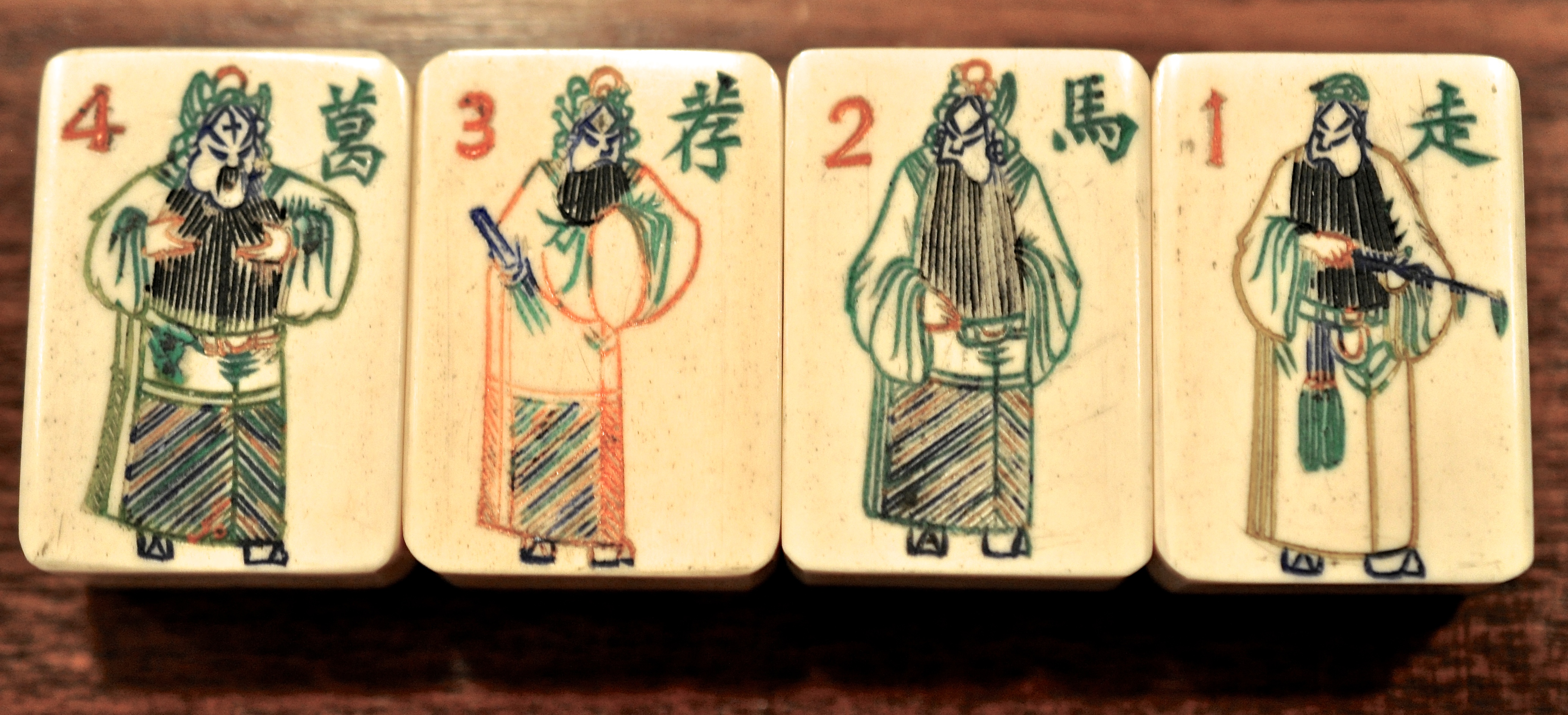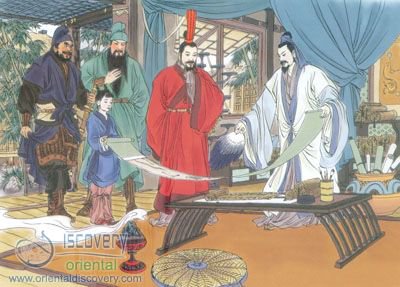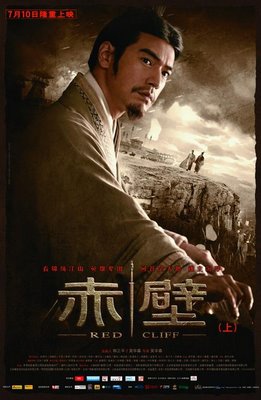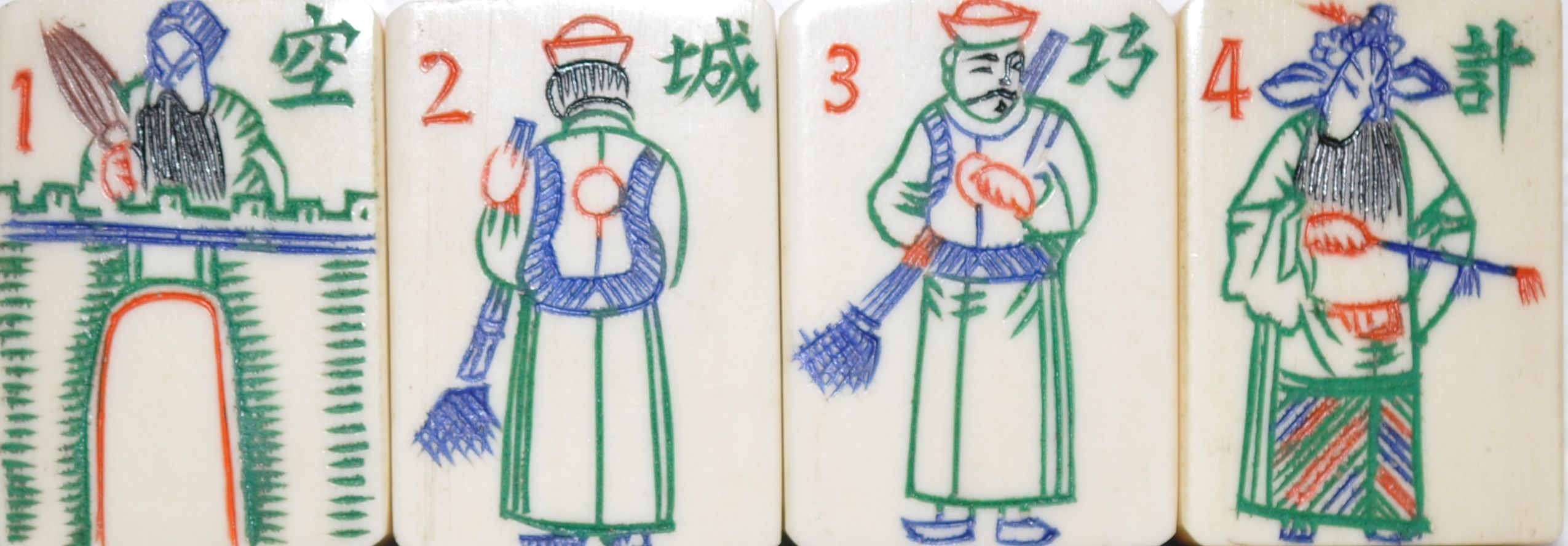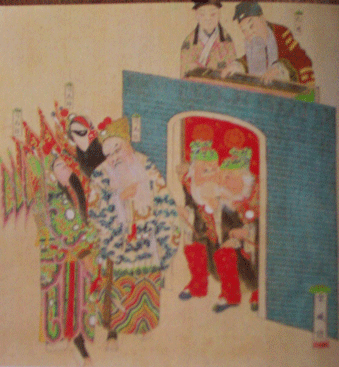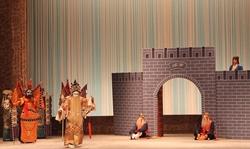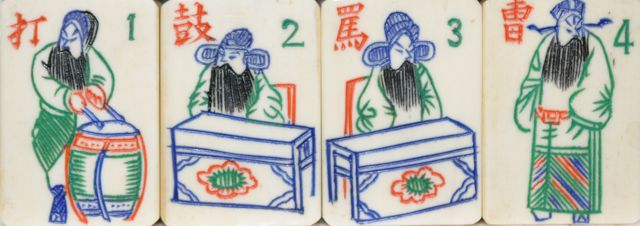As many of you know, Flower tiles can be wonderfully varied, ranging from flowers in pots, to landscapes, to scenes from literature, etc. The tiles today represent a scene from Romance of the Three Kingdoms, when Liu Bei met Zhuge Liang. (Zhuge Liang was the brilliant military strategist who fooled the attacking enemy when he appeared relaxed as he played the qin on top of the wall surrounding his empty city.)
Today's post was made possible by Ray Heaton who translated these four tiles.
Ray suspects
"these tiles refer to Zhuge Liang (or Kongming, the great military strategist) being recommended to Liu Bei, but the four characters shown are just part of a longer 6-8 character phrase.
The name Zhuge Liang should be three Chinese characters, but on these tiles his name is abbreviated to just one character, the "ge" part!
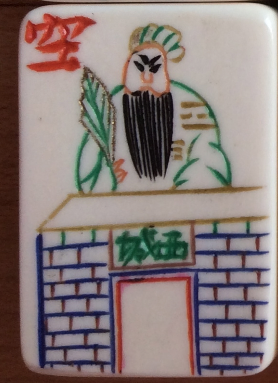
above photo courtesy of Laurie
The following shows the meeting of Zhuge Liang and Liu Bei, from Oriental Discovery
The love of Zhuge Liang and his story continues to this day. This poster is from a recent film
"Zhuge Liang (181–234),[2] courtesy name Kongming, was a chancellor of the state of Shu Han during the Three Kingdoms period. He is recognised as the greatest and most accomplished strategist of his era, and has been compared to another great ancient Chinese strategist, Sun Tzu.[3]
Often depicted wearing a robe and holding a hand fan made of crane feathers,[4] Zhuge Liang was not only an important military strategist and statesman; he was also an accomplished scholar and inventor. His reputation as an intelligent and learned scholar grew even while he was living in relative seclusion, earning him the nickname "Wolong" (literally: "Sleeping Dragon").
Zhuge is an uncommon two-character Chinese compound family name. His name – even his surname alone – has become synonymous with intelligence and strategy in Chinese culture....
According to historical texts, Zhuge Liang was eight chi tall, roughly between 1.85 metres (6 feet and 1 inch) and 1.95 metres (6 feet and 4.75 inches)...
Service under Liu Bei[edit]
....Liu Bei resided at Xinye while he was taking shelter under Jing Province's governor, Liu Biao. Liu Bei visited Sima Hui, who told him, "Confucian academics and common scholars, how much do they know about current affairs? Those who analyse current affairs well are elites. Crouching Dragon and Young Phoenix are the only ones in this region."[11] Xu Shu later recommended Zhuge Liang to Liu Bei again, and Liu wanted to ask Xu to invite Zhuge to meet him. However, Xu Shu replied, "You must visit this man in person. He cannot be invited to meet you."[12] Liu Bei succeeded in recruiting Zhuge Liang in 207 after paying three personal visits.[13][I] Zhuge Liang presented the Longzhong Plan to Liu Bei and left his residence to follow Liu. Afterwards, Liu Bei became very close to Zhuge Liang and often had discussions with him.Guan Yu and Zhang Fei were not pleased and complained. Liu Bei explained, "Now that I have Kongming (Zhuge Liang's style name), I am like a fish that has found water. I hope you'll stop making unpleasant remarks."[14] Guan Yu and Zhang Fei then stopped complaining."

